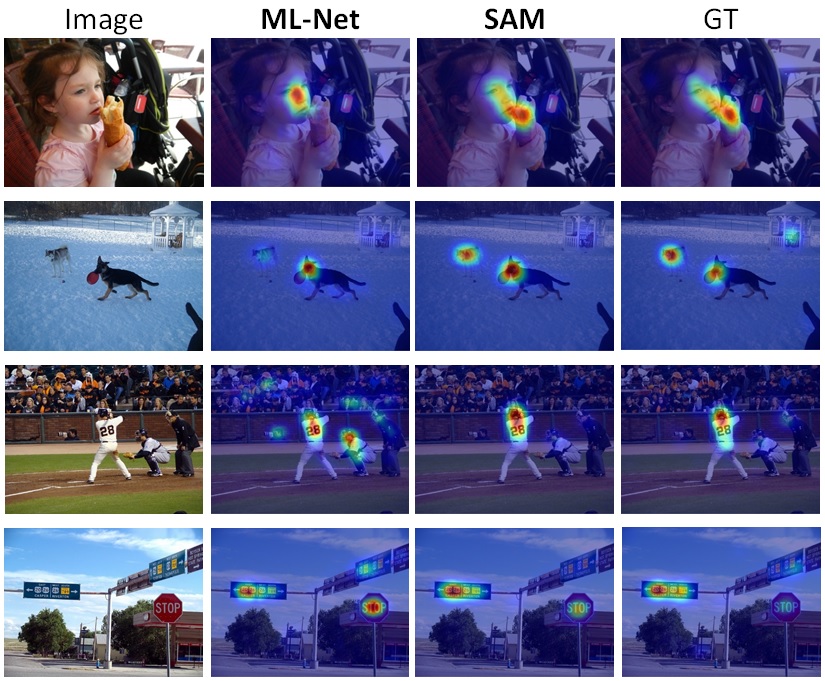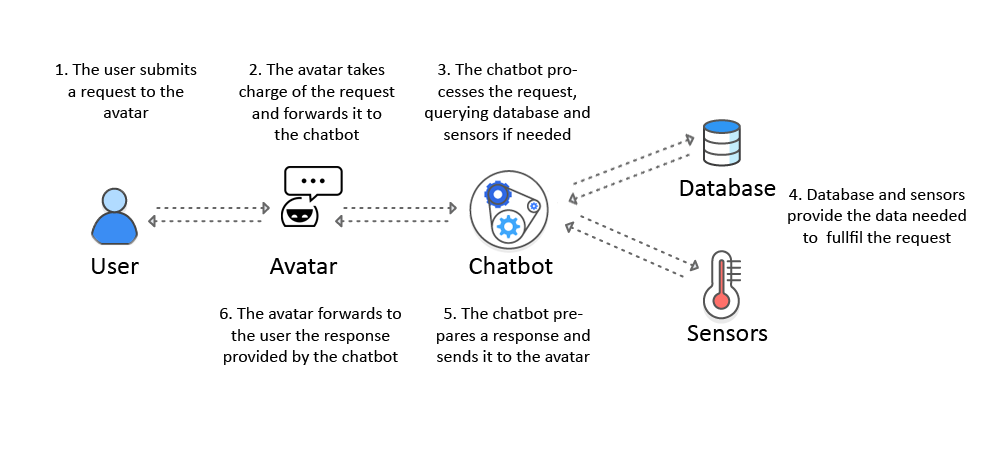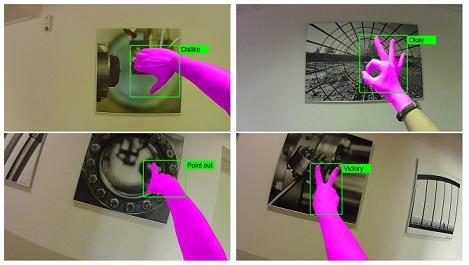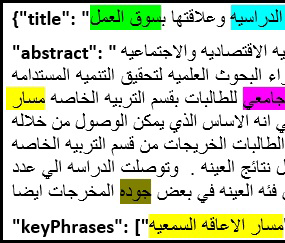Visual Saliency Prediction

When human observers look at an image, attentive mechanisms drive their gazes towards salient regions. Emulating such ability has been studied for more than 80 years by neuroscientists and by computer vision researchers, while only recently, thanks to the large spread of deep learning, saliency prediction models have achieved a considerable improvement. Data-driven saliency has recently gained a lot of attention thanks to the use of Convolutional Neural Networks for predicting gaze fixations. In this project we go beyond standard approaches to saliency prediction, in which gaze maps are computed with a feed-forward network, and we present a novel model which can predict accurate saliency maps by incorporating neural attentive mechanisms. The core of our solution is a Convolutional LSTM that focuses on the most salient regions of the input image to iteratively refine the predicted saliency map. Additionally, to tackle the center bias present in human eye fixations, our model can learn a set of prior maps generated with […]
Ambient Assisted Living ChatBot

A chatbot is a computer program or an Artificial Intelligence agent which conducts a conversation via auditory or textual methods. Such programs are often designed to convincingly simulate how a human would behave as a conversational partner. Chatbots are typically used in dialog systems for various practical purposes including customer service or information acquisition. They may use sophisticated natural language processing systems and are either accessed via virtual assistants, via messaging apps or via individual organizations’ apps and websites. The aim of our project is to study and analyze a series of innovative technologies which, integrated together in a prototype managed by a virtual assistant, allows to renovate the concept of domotics as we know it. Also, since chatbots are user more and more in a working environment, our aim includes developing a virtual assistant integrated with a chatbot to back up maintenance activities in an industrial setting. The project is supported by POR FESR FVG Project and conducted as […]
Egocentric Vision for Cultural Heritage

Augmented Reality and Humanity present the opportunity for more customization of the museum experience, such as new varieties of self-guided tours or real-time translation of interpretive. At the end of this year several companies will release wearable computers with a head-mounted display (such as Google or Vuzix). We’d like to investigate the usage of these devices for Cultural Heritage applications. Augmented reality is a real-time direct or indirect view of a physical real-word environment that has been enhanced/augmented by adding virtual computer-generated information on it. Augmented Reality aims at simplifying the user’s life by bring virtual information non only to his immediate surroundings, but also to any indirect view of the real-world environment, such as live-video stream. AR enhances the user’s perception of and interaction with the real world. While Virtual reality technology or virtual Environment as called by Milgram, completely immerses users in a synthetic world without seeing the real world, AR technology augments the sense of reality by superimposing […]
Arabic Keyphrase Extraction

Arabic keyphrase extraction is a crucial task due to the significant and growing amount of Arabic text on the web generated by a huge population. It is becoming a challenge for the community of Arabic natural language processing because of the severe shortage of resources and published processing systems. In this paper we propose a deep learning based approach for Arabic keyphrase extraction that achieves better performance compared to the related competitive approaches. We also introduce the community with an annotated large-scale dataset of about 6000 scientific abstracts which can be used for training, validating and evaluating deep learning approaches for Arabic keyphrase extraction. Related publications: Helmy M., Vigneshram R. M., Serra G., Tasso C. Applying Deep Learning for Arabic Keyphrase Extraction. In: Proc. of the 4th International Conference on Arabic Computational Linguistics (ACLing 2018), November 17-19 2018, Dubai, United Arab Emirates. Resources: Arabic Abstracts Dataset